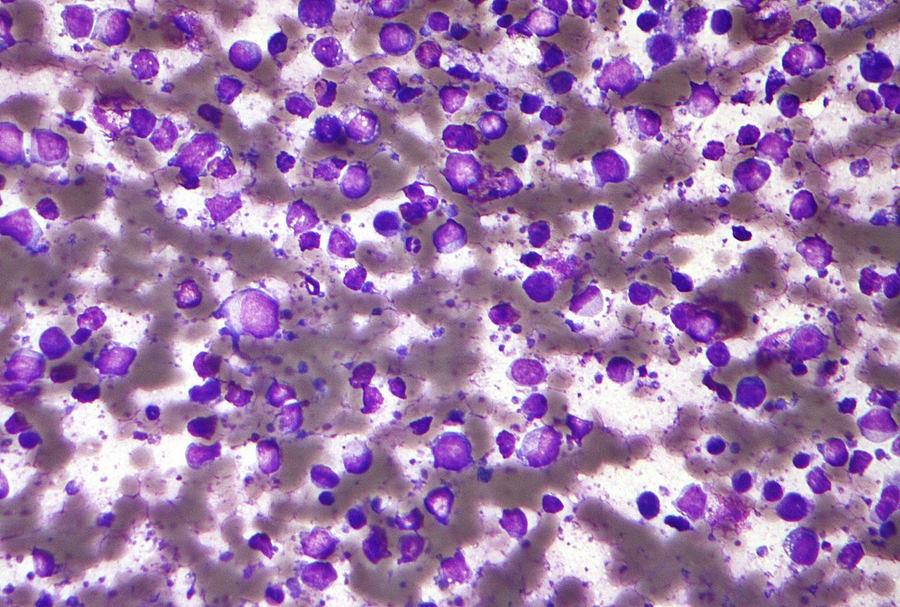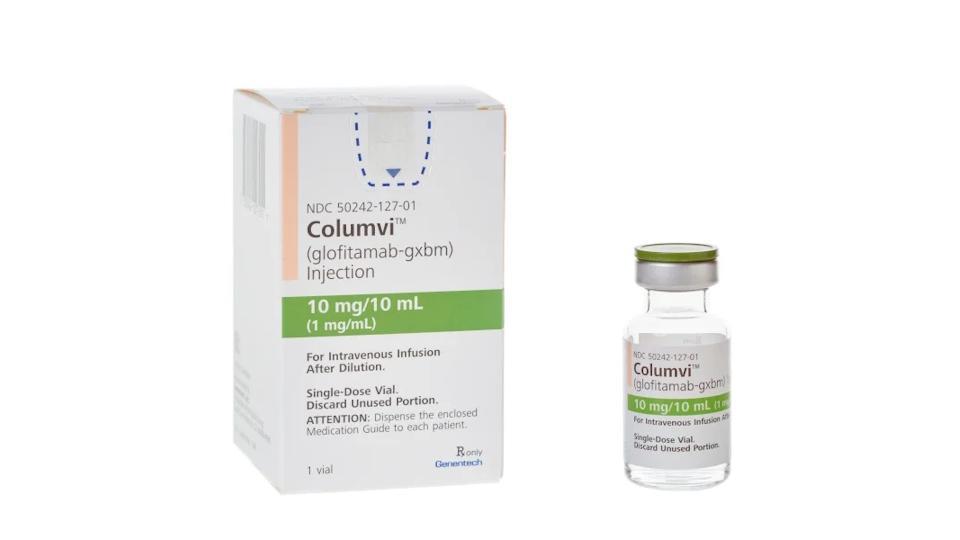CD20 market heats up as FDA OKs AbbVie, Genmab bispecific

Micrograph of a diffuse large B cell lymphoma,
AbbVie and partner Genmab have FDA approval for the lead drug in their $3.9 billion cancer partnership, with bispecific antibody Epkinly now cleared as a treatment for diffuse large B-cell lymphoma (DLBCL).
Epkinly (epcoritamab) is a CD20xCD3 bispecific and, according to its developers, is the “first and only” T-cell engager for “relapsed or refractory DLBCL, not otherwise specified (NOS), including DLBCL arising from indolent lymphoma, and high-grade B–cell lymphoma (HGBL), after two or more lines of systemic therapies.”
It is in the same class as Roche’s Lunsumio (mosunetuzumab), another CD20xCD3 bispecific that has been approved as a treatment for relapsed or refractory follicular lymphoma (FL), as well as Roche’s late-stage CD20xCD3 drug glofitamab that has been filed for approval in DLBCL. Regeneron’s rival odronextamab (REGN5678) is also in late-stage development.
AbbVie and Genmab’s drug has been given an accelerated approval on the strength of the phase 1/2 EPCORE study, which showed an overall response rate of 61% with the drug, including 38% complete responses, and a median duration of response of around 12 months.
As a rough comparison, in a similar trial population glofitamab had an overall response rate of 52%, with 39% complete responses, with 78% of them responding for 12 months or more.
“The FDA approval of Epkinly represents a new treatment mechanism of action for third line DLBCL patients,” said Thomas Hudson, AbbVie’s chief scientific officer.
“As a non-chemotherapy, single-agent treatment for DLBCL patients, we hope that Epkinly can effectively treat this aggressive cancer type and can be used for patient care quickly and in an off-the-shelf form for physicians,” he added.
The drug could will offer a simpler alternative to third-line CAR-T therapies for DLBCL, namely Novartis’ Kymriah (tisagenlecleucel), Gilead Sciences’ Yescarta (axicabtagene ciloleucel), and Breyanzi (lisocabtagene maraleucel), which have lengthy and complex manufacturing and administration procedures and require in-hospital care.
It is given as a once-weekly subcutaneous injection initially, followed by two-weekly and once-monthly dosing as treatment progresses. The list price comes in at around $37,500 per month, based on average duration of therapy of nine months, and should reduce thereafter as dosing becomes less frequent.
Analysts at Jefferies have said they believe Epkinly will lead the class with sales of $2.75 billion a year, with Roche’s two CD20xCD3 bispecifics making around $2 billion combined. If achieved, that will help AbbVie mitigate some of the impact of biosimilar competition to immunology blockbuster Humira (adalimumab), which started in the US earlier this year.
The analysts point to efficacy and safety advantages with AbbVie and Genmab’s drug, as well as subcutaneous injection versus intravenous for glofitamab. Roche, meanwhile, says the fixed duration of treatment with glofitamab hands it an advantage.
Both drugs are also being tested to try to move them further up the treatment pathway into second- and potentially first-line use in DLBCL, and here Roche is hoping to position glofitamab as a companion to its CD79b-directed antibody-drug conjugate (ADC) Polivy (polatuzumab vedotin), which was approved by the FDA for first-line use last month.
AbbVie and Genmab, meanwhile, are also testing Epkinly in FL, hoping to encroach on Lunsumio’s territory.
Image by Nephron via Wikimedia Commons













